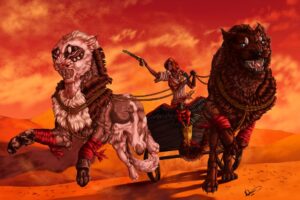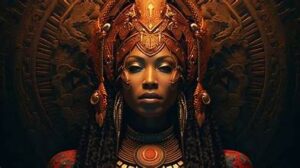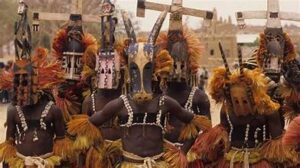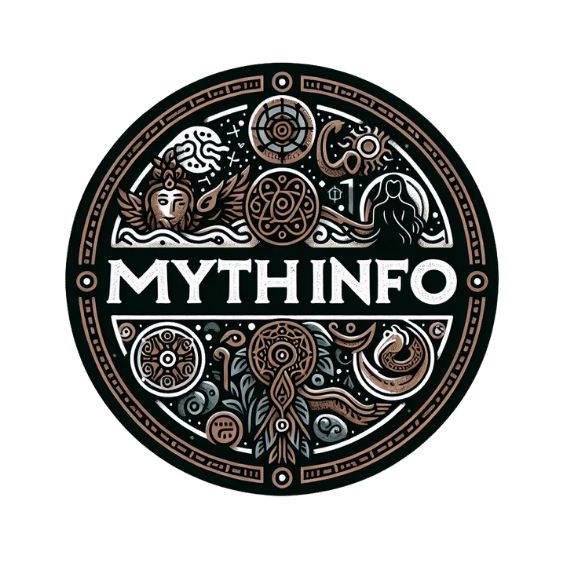
African mythology is a tapestry of rich, diverse traditions and stories that have been passed down through generations. These myths, deeply rooted in the continent’s ancient cultures, continue to influence contemporary society in profound ways. This article explores the significance of African mythology and how its ancient beliefs shape modern culture.
The Essence of African Mythology
African mythology encompasses a vast array of myths, legends, and religious beliefs from the continent’s diverse ethnic groups. Unlike the more centralized mythologies of other cultures, African mythology is decentralized, reflecting the continent’s rich mosaic of cultures. Central to these myths are creation stories, deities, spirits, and ancestral figures that embody moral lessons, historical events, and the natural world.
Major Themes in African Mythology
- Creation Myths: African creation myths often revolve around a supreme deity or a pair of deities who created the world. For instance, in the Yoruba tradition, Olodumare (or Olorun) is the supreme being responsible for the creation of the universe. Similarly, the Akan people believe in a creator god, Nyame, who fashioned the world and all life within it.
- Deities and Spirits: African pantheons are populated with a multitude of deities and spirits, each governing various aspects of life and nature. The Egyptian pantheon, for example, includes gods like Ra, the sun god, and Osiris, the god of the afterlife. In contrast, the Bantu-speaking peoples of Central Africa worship a variety of spirits associated with natural elements and ancestors.
- Ancestral Worship: Ancestral spirits hold a significant place in African mythology. Ancestors are revered and believed to have the power to influence the living. Practices involving ancestor veneration, such as rituals and offerings, are common across many African cultures.
Influence on Modern Culture
African mythology’s influence extends far beyond traditional rituals and ceremonies. Its impact is evident in various aspects of modern culture, including literature, art, film, and music.
- Literature: Contemporary African writers often draw on mythological themes and characters to enrich their narratives. For example, Chinua Achebe’s “Things Fall Apart” incorporates Igbo mythology to highlight the cultural and social dynamics of pre-colonial Nigeria. Similarly, Nigerian author Nnedi Okorafor blends African mythological elements with science fiction in her works, creating a unique literary genre that resonates with global audiences.
- Art: African art, both traditional and modern, frequently reflects mythological themes. Masks, sculptures, and paintings often depict deities, spirits, and mythological scenes. The work of contemporary African artists, such as El Anatsui and Wangechi Mutu, continues to explore and reinterpret these mythological motifs, bridging the ancient and modern worlds.
- Film and Media: African mythology has also made its mark on the global film industry. Hollywood movies like Disney’s “The Lion King” draw inspiration from African cultural elements, including mythology, to create captivating stories. Additionally, Nollywood, Nigeria’s film industry, often incorporates mythological themes and folklore into its productions, appealing to both local and international audiences.
- Music and Dance: Traditional African music and dance are deeply intertwined with mythology. Many songs and dances serve as rituals or storytelling devices that recount mythological tales and honor deities. Contemporary African musicians, like Burna Boy and Wizkid, incorporate mythological references into their music, blending traditional themes with modern genres.
Preserving and Evolving African Mythology
The preservation of African mythology is crucial for maintaining cultural identity and heritage. Efforts to document and study these myths help to safeguard them for future generations. Additionally, the reinterpretation of mythological themes in contemporary contexts allows for the evolution of these ancient beliefs, ensuring their continued relevance in modern culture.
Educational initiatives and cultural organizations play a vital role in promoting the understanding and appreciation of African mythology. Museums, academic institutions, and community groups work to preserve and disseminate knowledge about these rich traditions, fostering a greater appreciation of Africa’s diverse cultural heritage.
Conclusion
African mythology, with its diverse pantheon of deities, creation stories, and ancestral beliefs, remains a powerful force shaping modern culture. From literature and art to film and music, the influence of these ancient myths is both profound and pervasive. As we continue to explore and reinterpret these stories, we gain deeper insights into the values and traditions that have shaped Africa’s cultural landscape.

